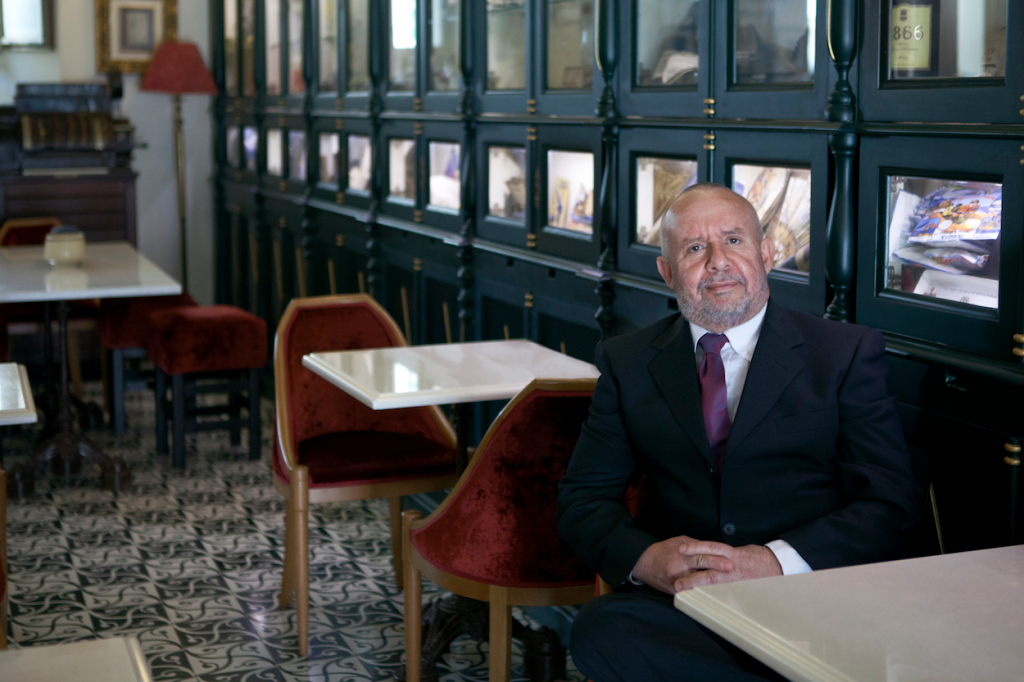[ad_1]
Barry Avrich is a prolific documentary film producer. In 2017, he released Blurred Lines: Inside the Art World, about the contemporary art market. Now Avrich has produced Made You Look: A True Story About Fake Art about the Knoedler forgery trial that took place in 2016. Avrich talks about how he got former Knoedler director Ann Freedman to participate in making the documentary, as well as alleged mastermind of the fraud, José Carlos Bergantiños Diaz. Throughout the movie, Avrich allows the parties to speak for themselves. The result is a fair but compelling look at the illusions and delusions that surround the world’s most valuable art. The film will open with a limited theatrical release this fall in New York, London, and Los Angeles. It will be streamed in wide release in early 2021. This is an excerpt from the podcast above:
Marion Maneker: I was impressed that you really were incredibly fair. You had Ann Freedman making her case. She’s really the backbone of this. I’m not sure you would have had quite the documentary without her as the centerpiece. Whether she’s defending herself or whatever else. But you presented her points and then you presented counterpoints to it throughout the story. I think one of the interlocutors even says they were doing some jury panel consulting on it and the jurors were all going, “oh, you know, you hear one side and you think you agree with it. Then you hear the other.” And that made them think they had a shot at this. And that’s what makes the documentary so good. But I wanted to ask about getting Ann Freedman to cooperate. Was that hard?
Barry Avrich: She was not eager at all. It took some convincing. I flew to New York. I’m based in Toronto. I flew to New York and spent hours and hours trying to convince her. I had seen another documentary on the same topic that was fairly archival driven. And you know, the lawyers and the journalists, and they’re important. But I knew I needed central characters to make it work. You’re right. She was the backbone. What I said to Ann quite honestly was, pardon the pun: I’m going to give you the canvas of a feature-length film to tell your story. I cannot guarantee that this is your vindication. I cannot guarantee that people won’t have their own view. But in a filmography of nearly 50 documentaries, I’m balanced. You know, I will let the audience decide.
There’ll be people in the film you will not like. There’ll be people in the film that are supportive. And, to be honest with you, after every time and every shoot that we did—and I filmed nearly twenty five hours with her and spent another hundred interviewing her—you know, you do tend to vacillate from going, God, for ten years—I mean, an ocean of red flags—but it was over a 10-year period. So you’ll leave a shoot. My own crew going, you know, I should have known. Did know. Got conned. You go back and forth in this story, which I think is part of the entertainment value as well. But it did. It did take an enormous amount of convincing.
Do I think that Ann will like the film? No. Ann is an academic. It is death by paper cuts. And that anything she reads and sees, she hates the trailer for the film. She saw that because that’s public. The film hasn’t been released in the U.S. yet. She hasn’t seen it. But that’s not my motivation to, you know, to vindicate Ann. It is to give her another day in court. Let her tell her side of story. Same thing with Domenico De Sole and others who felt that television shows like American Greed and 60 Minutes were choppy and late. They used pieces and they really didn’t, you know, they manipulated them. And I basically said the same thing, everybody. I’m going to sit down with you. I’m an interviewer. I’ve done this forever. I’m going to give you hours to talk. I can’t use it all, but I promise you, your perspective will be in the film. So Ann ultimately trusted me. And, you know, and I think it was the fairest shake she was going to ever get.
[ad_2]
Source link


